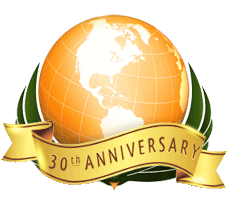A Note from our weekly Cultural Diversity Training
- Jun 27, 2016
- 3 min read

Reflecting on the Tragedy of the Orlando Shooting
Our first reaction: Grief and mourning the loss of fellow human beings.
What do we hear the shooter is saying? “If you are different from me or you represent a part of me that I am not sure about, you must die . . . and I take my life to make the point.”
One general, extreme reaction is stating: “the world is a dangerous place to live in. I should avoid any involvement.” Another extreme reaction is “violence cannot be tolerated. We have to increase our safety by being armed and ready to defend ourselves at all times.” Moving from one extreme to another, we come to the center, where we need to reflect on our role and responsibility as psychologists in a helping profession.
I believe, being in a helping profession, it is important to look at the matter as a public health issue rather than merely as a matter of crime or terrorism or even mental illness.
About Homosexuality
We understand that many factors contribute to our attitude toward homosexuality, such as social norms, religion, media, economics, health hazard/AIDS Epidemic, as well as political and the military’s attitude/concept.
We must not forget the influence of all of the historical social movements and linkage between them, including the civil rights movement, women’s movement, gay rights movement, disability rights movement, labor movement, and others, that highlight common thread of human rights and social justice.
About Radicalization
We also reflected on factors contributing to radicalization. Is radicalization a religious matter? a mental health issue? neither? both? and many more? This analysis leads to the understanding that it is complex, diverse, and impacted by so many factors. We recognize that we are in the profession of analyzing, sorting things out, making meaning out of it, with the aim of leading to effective, specific intervention.
Intervention: How to Respond to the Problem
I believe that true and effective intervention cannot stop at the individual level. In reality individuals are influenced by and influencing the community they come from. Therefore, true intervention must include both the individual and community. By “community” I mean many layers including family, social, education, healthcare, legal/judicial system, etc., in local and global levels. Accordingly, we must consider both the individual and community as our client.
Actualizing the Ideal
Every week, I present a different topic as it relates to the socio-psychological; geopolitical dynamic in the context of our Cultural Diversity Training. The significance of our Diversity Training is the outcome oriented goal of focusing on developing a systematic, ongoing effort to identify disparity in any relevant domain of our social system. This organized effort is framed as an advocacy plan. Each person is assigned to identify a gap of disparity in the relevant domain of community problem and make a specific recommendation for change to be implemented as an advocacy plan. They do this by using their immediate network of clients, friends, family, and community members through individual contact and social media. The aim is to raise awareness by promoting the growth mindset, making positive changes, and providing access and linkage to health and mental health services. Our strategic plan includes connecting with the most importantly influential stakeholders in our community, such as parents, teachers, children, adults, families, local politicians, legislators, religious leaders, and others. We are developing a bound of collaboration in sharing our mission of contributing to sustainable, healthy community.
I am optimistically hopeful that by having an advocacy plan for each presenting problem, which we include in clients’ care plans, we strategically become an active player in “moving the needle” of priorities toward action plan. By addressing inconsistent policies and procedures we intend to reach the ultimate goal of bridging gaps and facilitating connection to social justice.
As idealistic as it may sound, I believe it is do-able and at IMCES we are moving toward practicing accountability as a responsive and responsible member of our profession.











































Comments